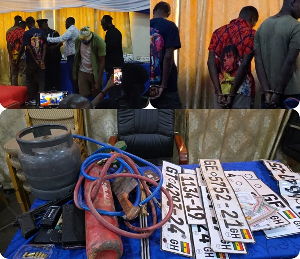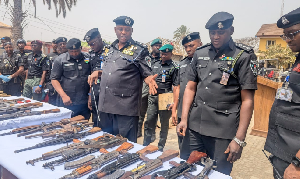Accra, Jan. 17, GNA - Professor George Panyin Hagan, Chairman of the National Commission on Culture, on Monday said arts and culture stood a greater chance of promoting democratic values only when they were democratised.
"Unless arts and culture are democratised, the capacity of the arts and culture to promote democratic values, attitudes and behaviours will be extremely limited," he said.
Speaking at the opening of a three-day conference for the Commonwealth Foundation Arts and Culture Experts Group Meeting in Accra, Prof Hagan noted that failure to achieve democratisation would result in only a few creating and using the arts and culture to promote sectional interest and values.
He said democratising arts and culture required making education of human development universal so as to offer every citizen the opportunity to acquire knowledge and appreciation of arts and culture.
Prof. Hagan said the resources for artistic and cultural enterprises must be made available and accessible to all as well as making accessible their cultural products and institutions.
He said once this was done, people, especially women, would gain access to formal education and taboos against their participation in certain types of art and cultural vocations would be broken and they would become active actors and producers in the cultural domain. "Unfortunately, in the mist of national poverty, the four-fold agenda is beyond the capacity of the national budget to achieve. Thus men and women of artistic excellence are lost to the richer nations," he said. Making recommendations to the Commonwealth Foundation, Prof. Hagan said it was possible to identify activities that would help express and articulate the democratic values that underpinned the key institutions of the organisation.
He said the Foundation should consider the possibility of instituting and designating one Cultural Capital for the Commonwealth on an annual rotation basis to project the image of the unity and cultural diversity of the Commonwealth.
Prof. Hagan called for the networking of all cultural institutions as well as the establishment of a code for exchange of staff and artefacts for exhibitions and other cultural events.
He said the Foundation should assist member countries to develop their cultural and artistic institutions such as museums and arts galleries and help train professionals to run them.
Prof. Hagan also called for the creation of a Culture Trust Fund for the promotion of Commonwealth Cultural events.
He lobbied for Ghana to be made the Cultural Capital of the Commonwealth, and also called for her to host the next meeting of the Commonwealth Heads of States and Government meeting. Mrs Rudo Chitiga, Acting Director, Commonwealth Foundation, said the meeting aimed at reviewing and redefining its programmes for the next four years.
She said its critical role was to strengthen the ability and capacity of citizens and civil society to work together and with government and private sector to promote the arts and culture within Commonwealth nations.
Entertainment of Monday, 17 January 2005
Source: GNA












